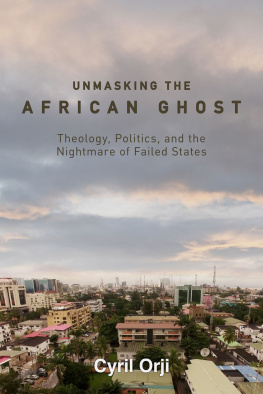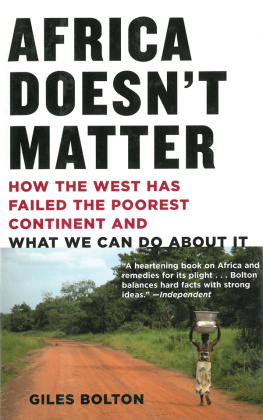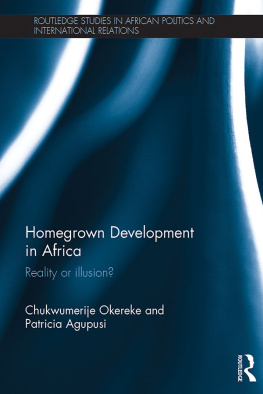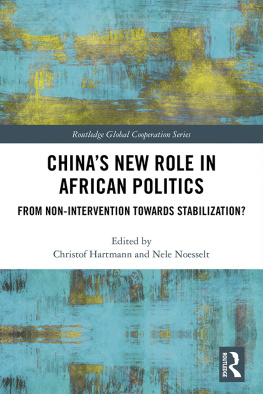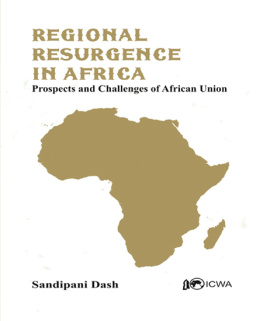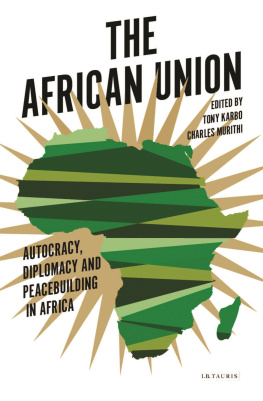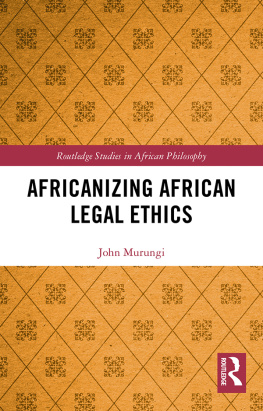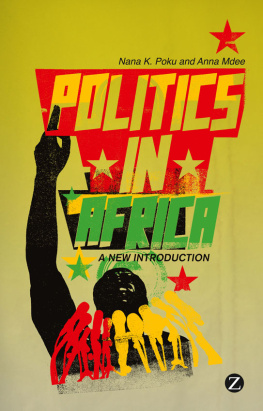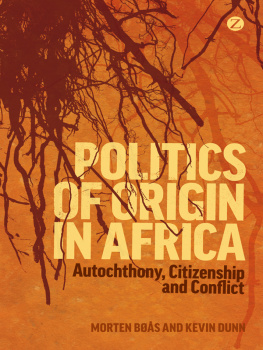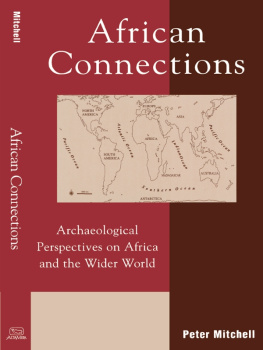UNMASKING THE AFRICAN GHOST
UNMASKING THE AFRICAN GHOST
Theology, Politics, and the Nightmare of Failed States

Cyril Orji

UNMASKING THE AFRICAN GHOST
Theology, Politics, and the Nightmare of Failed States
Copyright 2022 Fortress Press, an imprint of 1517 Media. All rights reserved. Except for brief quotations in critical articles or reviews, no part of this book may be reproduced in any manner without prior written permission from the publisher. Email or write Permissions, Fortress Press, PO Box 1209, Minneapolis, MN 55440-1209.
Unless otherwise noted, Scripture quotations are from the New Revised Standard Version of the Bible, copyright 1989 by the Division of Christian Education of the National Council of the Churches of Christ in the USA and used by permission. All rights reserved.
Cover image: iStock/fivepointsix
Cover design: Brice Hemmer
Print ISBN: 978-1-5064-7943-9
eBook ISBN: 978-1-5064-7944-6
Dedicated to Thomas and Maria Cristina Nassif on their fiftieth wedding anniversary

Your love for each other and for humanity is a mirror of Gods love for the world.
CONTENTS
ACKNOWLEDGMENTS
There is a lot that goes into a book before the reader sees the finished product. From the beginning of the research to its production, there were many actors whose contributions have been invaluable.
Im blessed to have a true friend in John Dadosky of Regis College of the University of Toronto. He always has something insightful to show me in the works of Lonergan. The problem of land grab in Africa was brought to my attention by Dr. Aniedi Okure, O.P. in his role as the executive director of the African Faith and Justice Network (AFJN). His useful information was the catalyst that spurred this research. My colleague Dennis Doyle of the University of Dayton accompanied me to Africa on one of my teaching and research trips, and we both taught some African students.
The good people at the Lonergan Center at Boston College, especially Patrick Byrne, Fred Lawrence, Kerry Cronin, and Mary Elliot, played a key role in getting this book to the finish line. They also supported me with a Lonergan Fellowship (202021). Although the research for the book was years in the making, the book was completed during the fellowship year at Boston College. Marva and Sherman Gray of the city of Dayton have been Godsent in every sense of the term. They provided the logistical support every step of the way. There is also the entire Nassif family: Dr. Thomas Nassif and Mrs. Cristina Nassif and their childrenJose, George, Anna, Cristina, and Tito. You all have been divine agents in a world shrouded in mystery.
My sincere gratitude also goes to my publisher, Fortress Press. I must mention Jesudas Athyal, who saw the potential in the project, and my dear friend and editor, Ryan Hemmer, who together with the production editor, Marissa Wold Uhrina, worked indefatigably on the manuscript and helped to put finishing touches to it.
While the manuscript was being prepared, the Lord called to Himself two of my beloved Lonergan colleagues who have been pivotal to my professional career, Robert M. Doran and Philip McShane. While we here on earth are saddened for losing you, the angels in heaven have added one more beat to their dancing steps because of you. For all the African students and colleagues you helped in this life, you will always remain a friend of Africa.
Without the various contributions of all these good people, this manuscript would never have seen the light of day, and for that, I am most grateful. While their contributions helped make the book what it is, I take sole responsibility for any shortcomings the reader may encounter.
Lastly, I would be remiss if I do not mention the role of Divine Providence. Obstacles are a feature of life and at times can be so mounting as to test faith. But in the face of all odds, Divine Providence sustained me. It was also Divine Providence that led me to the path of the human agents who helped bring the book to completion. Providence, like faith, is the substance of things hoped for and the evidence of things not seen (Hebrews 11:1).
INTRODUCTION
Two momentous events took place in Africa as this manuscript was being completed. The first happened on August 18, 2020, when a group of Malian military officers stormed the presidential palace and overthrew the countrys duly elected president, Ibrahim Boubacar Keta, in what the Washington Post described as the first coup dtat of the coronavirus era. before it could hand over power to a new civilian president.
The second event was the nationwide protest in Nigeria that began in early October 2020 when Nigerian youths took to the streets to protest the activities of the special police unit called the Special Anti-Robbery Squad (SARS). Since its formation in 1992, SARS has been accused of a long list of crimes, which, according to Amnesty International, includes extortion,
The situations in Nigeria and Mali are still unfolding. No one knows how they will end. They may end up transforming both countries (one can only hope). But in the meantime, these situations speak to the larger problem of state corporatization that has resulted in ghost states in many parts of sub-Saharan Africa. This book seeks to address these corruptions, corporate mentalities, and failures of the organs of the state. It is about how Africa can make a much-needed critical turn and forge a truly African democratic governance that speaks to the issues that Africans face.
Although this book recounts the history of Africa, it does not pretend to offer a comprehensive history of the origins and the ideals of the continent. Among historians and demographers, there is no consensus as to The road to realizing the ideal that Africa holds has been bumpy at best.
The American novelist, poet, civil rights activist, and pan-Africanist James Arthur Baldwin (192487) argued that it is not possible in America to be Black and not be paranoid. The racial fault lines in the United States demoralize the Black persons sense of worth. Similarly, Africa is a demoralized continent. And being African tends to make one paranoid. Demoralization, in Baldwins usage, is the effect of being robbed of ones sense of human value. In Black Africa, the intellectual and moral bankruptcy of its leadership has brought about a collective problem that is being experienced throughout the continent: the nightmare of a failed state. The book addresses, from a theological point of view, why the political and economic systems in African countries have not worked and proposes paths for recovery. Its remedy is premised on the idea that Africa is a continent that is continuously trying to redefine its identity and renegotiate itself in the face of Eurocentrism.
The book has three main objectives:
1.To initiate from a theological perspective a cross-disciplinary conversation on a model of government appropriate for the African situation.
2.To use a theological analysis to show how the challenges of a failed state and the enduring problems posed by poverty, suffering, and alienation can be remedied using resources from the Christian Gospel that are inclusive and all-embracing.

